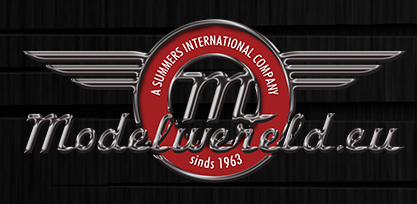When Douglas introduced the Devastator into the US Navy's carrier air groups in 1937, they had created the blueprint for future naval aviation. The aircraft was the first monoplane to go to sea. With the exception of the flight control surfaces, the aircraft was all-metal in construction. Most importantly, the wings could be folded to facilitate dense parking on the limited real estate of the flight deck or in the hangar deck.
By the time war erupted a few years later, the TBD-1 was on the other end of the technology spectrum - virtually obsolete. As Secretary of Defense Donald Rumsfeld once said: "You don't go to war with the forces you want, you go with the forces you have." Such was the case with the TBD-1, and its crews fought hard. In the Battle of Coral Sea, TBD-1s helped to sink the carrier Shoho, but in the Battle of Midway, the Devastators experienced devastating losses and were soon replaced with the TBF Avenger.
Twee uitvoeringen mogelijk;
- VT-8 aboard USS HORNET ENS George Gay.
- VT-8 aboard USS HORNET Squadron Commander LCDR John C.Waldron.
Model-details:
- Three very detailed cockpits
- Seat belts/shoulder harnesses provided as photo-etched parts
- Radio equipment nicely done
- Detailed bombardier/torpedoman positions
- Dual .50 caliber rear gun ring installation
- Canopies can be positioned open or closed
- One-piece canopy provided for completely closed option
- Observation/aiming doors are positionable
- Detailed Twin Wasp engine
- Choice of open or closed cowl flaps
- Wings can be posed folded or extended
- Flaps can be posed extended or closed
- Landing gear can be posed raised or down
- Ventral belly pan options for plain or recessed torpedo cradle
- Optional bomb shackles provided for plain belly pan version
- Two types of torpedoes provided, one with standard fins, the other with the special box fin
- Canopy paint masks are included


